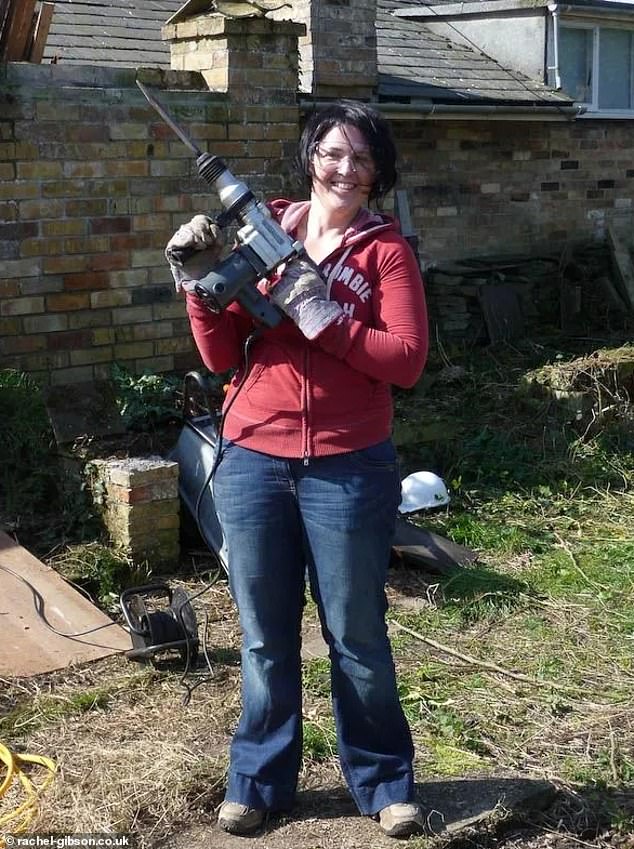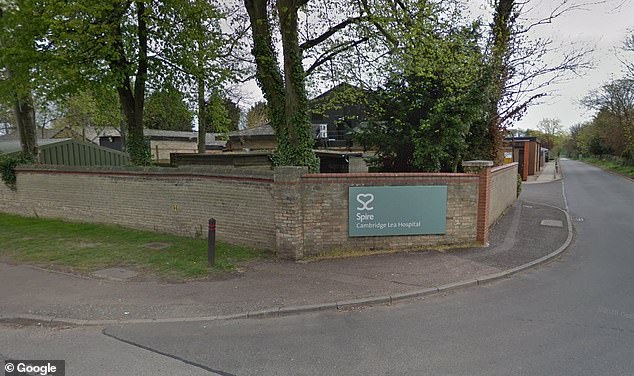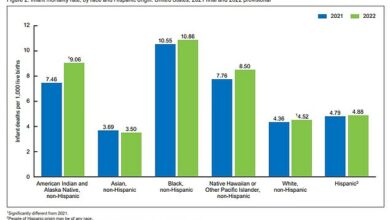Woman, 47, dies during hip surgery due to ‘common’ anaesthesia problem – and coroner warns ‘future deaths’ expected





A coroner has warned that a common way of administering anaesthesia could result in potentially lethal doses, following the tragic death of a woman during surgery.
Doctor Rachel Gibson, 47, suffered a cardiac arrest in April 2022 after a routine hip operation at Spire Lea Hospital in Cambridge.
While she was being resuscitated, Dr. Gibson was found to have suffered irreversible brain damage from lack of oxygen. She died three months later.
Later investigation revealed that her death was the result of a hospital error involving the use of too much local anesthesia during surgery.
Now, in a report sent to the Royal College of Anaesthetists (RCOA), coroner Philip Barlow has warned that the process that led to the error is “common practice nationwide” and that “there is a risk that deaths will occur in the future if action is not taken”.

Dr Rachel Gibson, 47, suffered a cardiac arrest, meaning her heart stopped, after routine hip replacement surgery at Spire Lea Hospital in Cambridge in April 2022

A memorial page honoring Dr. Gibson described her as a “loving daughter,” “wonderful mother,” and “a wonderful wife and a loyal friend to so many.”
According to the report, it was common practice in these types of procedures for the anesthesiologist to instruct the nurse on the type and dosage of anesthetic to be used.
This dose is then prepared by the nurse and handed to the surgeon.
But the report found that responsibility for control and implementation was “unclear”.
This showed that the anesthetist’s instructions were given verbally and not written down. Furthermore, the anesthetist did not check what the nurse had written down.
Mr Barlow wrote that the nurse’s notes were then handed directly to the surgeon.
In addition, there was inconsistency in the way the anesthetist prescribed the anesthetic: milliliters and milligrams were used interchangeably. This led to potential errors.
Mr Barlow wrote: ‘This is particularly concerning if the drug is intended to be diluted. If the drug is always prescribed in milligrams, the potential for errors may be reduced.’
An investigation into the death of Dr. Gibson, a medical examiner, found that the intention was to dilute a two percent Ropivacaine solution with normal saline before it was used.
However, there are indications that this did not happen and that too much of the drug was accidentally administered.
Although the report focused on Dr Gibson’s death, Mr Barlow said there were potential lessons to be learned that went beyond those for the hospital involved.
“The hospital in question has now implemented a system for labeling and co-signing the medication administered during surgery,” he wrote.
‘However, the evidence presented to the inquiry showed that there is considerable variation nationally in the way local anaesthetic is prescribed, monitored and administered for these types of procedures. It is common to follow a similar practice to that used in this operation.’
Addressing the RCOA, he added: ‘That is why I feel I have a duty to bring this to your attention.’
A spokesperson for Spire Healthcare told the BBC It expressed its “sincere condolences to the family of Rachel Gibson for their loss.”
‘We note that the coroner, after hearing the testimonies, has taken the decision to raise the national issue with the competent authority to consider whether further action should be taken. We support this important step.’
Dr Fiona Donald, Chair of the RCOA, also expressed her condolences to Dr Gibson’s family and said they were considering the coroner’s report.
“We have received the coroner’s report and will investigate this matter thoroughly before responding by October 29,” she said.
‘The RCoA is responsible for ensuring standards of anaesthesia are maintained and we will do everything we can to address the issues raised by the coroner to prevent similar tragedies from happening in the future.’
Dr. Gibson worked as an expert in medical research into cancer, specializing in the interaction of the nervous system and hormones, and was a mother of one child.
A memorial page bearing her name described her as a “loving daughter,” a “wonderful mother” and “a wonderful wife and a loyal friend to so many people.”
Anaesthetic deaths in the UK are very rare. The RCOA says the anaesthetic death rate is about one death per 100,000 uses.

While she was being resuscitated, Dr Gibson was diagnosed with irreversible brain damage due to lack of oxygen. She died three months later. Pictured: Spire Lea Hospital, Cambridge

Although the report focused on Dr Gibson’s death, the coroner said there were potential lessons beyond those for the hospital involved
However, it was also added that the individual risk may vary significantly depending on the specific health status and general condition of the patient.
Deaths have been reported previously due to incorrect use of anesthesia.
In 2020, Manchester Crown Court heard into the death of Christopher Hales, aged 56, who died in hospital following Dr Shahid Khan’s ‘catastrophic’ anaesthetic error before a routine procedure.
Mr. Hales, a devoted family man, had developed lung problems from smoking.
In May 2017 he was admitted to Wythenshawe Hospital in Manchester with a collapsed left lung.
He opted for ‘talc pleurodesis’, a procedure in which talcum powder is inserted into the chest cavity to ‘stick the lung to the chest wall’ and close the holes in the lung.
But the prosecution said Khan’s preparation and execution of the sedation plan were “disastrous.”
Khan had decided to give him two drugs at the maximum dosage, but lost control over the amounts he administered.
Mr Hales suffered a cardiac arrest and attempts to resuscitate him were unsuccessful.
Khan was sentenced to 20 months in prison, suspended for two years, after pleading guilty to manslaughter through gross negligence.
Analysis of NHS data by experts from the Universities of Manchester and York has found that medication errors, across all types of medicine, lead to around 1,700 patient deaths in England alone.
Publish their findings in the BMJ They found that most deaths, around 1,000, occurred in hospitals, while the remaining deaths occurred in primary care, such as general practitioners and pharmacies.




